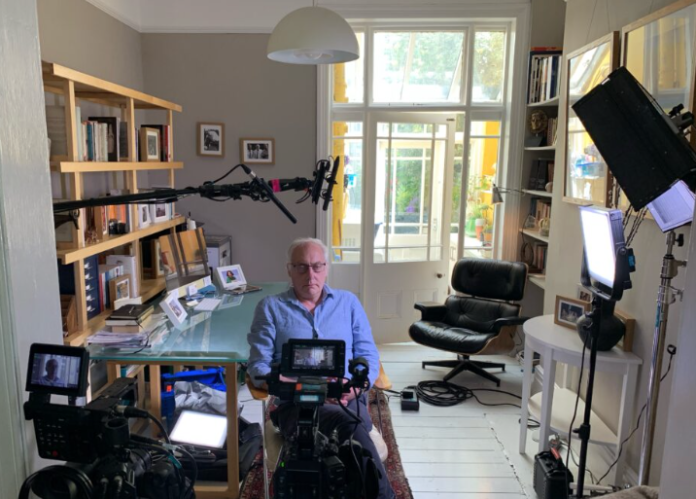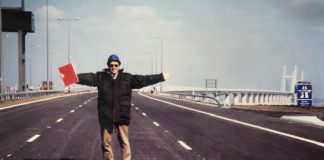- Don’t let it be again part two - 15th July 2025
- Best of enemies part two - 14th July 2025
- Childish politics - 11th July 2025

As shown by the recent gun attacks near Russia, when the West were blamed without evidence, securing accurate information is sometimes difficult, and our Editor, Welshman Phil Parry has been forced to use subterfuge to get at the truth.
Sometimes it is extremely difficult to get at the facts, and the authorities throw up barriers.
You then have to rely on journalists like me, and unfortunately on occasions, ‘underhand’ tactics to find out the truth.

A case in point has just happened in Russia’s North Caucasus republic of Dagestan, and one parliamentarian said the West were to blame.
According to the local member of Russia’s parliament (Duma), Abdulkhakim Gadzhiyev, there is “no doubt” the attacks are connected to “the intelligence services of Ukraine and NATO countries”.

The head of the Duma’s International Affairs Committee, Leonid Slutsky, put forward similar claims, saying that the Dagestan attacks and a missile strike which killed four in Russia-occupied Sevastopol “could not be a coincidence”.
“These tragic events, I am sure, were orchestrated from abroad and are aimed at sowing panic and dividing the Russian people”, Mr Slutsky said.
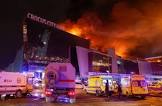
But there is no evidence whatsoever supporting comments like these, and recent events seem to suggest otherwise.
For example in the Crocus City Hall attack in Moscow last year, at least 145 were killed, and Vladimir Putin blamed the West as well as Ukraine, but Islamic State (IS) claimed responsibility in a statement through the IS-affiliated Amaq News Agency, with its regional branch in the Afghanistan–Pakistan border region, Islamic State – Khorasan Province (IS–KP), most likely being responsible.

Dagestan (and the region around it) is predominantly Muslim, and is no stranger to violence by Islamic extremists.
A homegrown insurgency has staged multiple attacks across the North Caucasus over the last two decades, following Russia’s wars in Chechnya.

 It is clear, then, that information from the authorities sometimes can’t be trusted and you have to do your own work.
It is clear, then, that information from the authorities sometimes can’t be trusted and you have to do your own work.
On the sadly now-axed BBC Wales TV Current Affairs programme Week In, Week Out (WIWO) I presented for 10 years, we sent one courageous researcher to be employed in the kitchen of a Cardiff pub serving food where we knew disturbing events were taking place.
She had a hidden camera sewn into the button of her uniform.
The alarming practice of changing ‘serve by’ dates on frozen food was then shown, along with the notorious comment from one person who worked there: “I wouldn’t serve this stuff to my dog”.
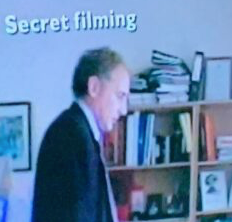
There were resignations after that WIWO.
I have personally also used subterfuge to get information, when the authorities were trying to prevent you.
For one BBC TV Panorama programme I fronted, I wore a hidden camera in my tie which became very hot.
I kept having to move my tie otherwise the heat would have become unbearable on my chest!
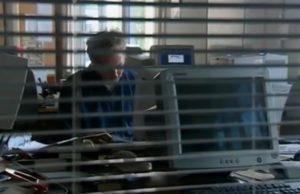
This was for an investigation into a high-profile Welsh murder case, and how the police had behaved.
During this secret recording in Briton Ferry, the senior ex-police officer who we were filming made a highly incriminating statement.
Unfortunately, sometimes these sort of methods are necessary if we are told, for example, that after murderous attacks there is “no doubt” they were connected to “the intelligence services of Ukraine and NATO countries”…

The memories of Phil’s decades long award-winning career in journalism (when occasionally secret recording was necessary) as he was gripped by the rare neurological disease Hereditary Spastic Paraplegia (HSP), have been released in a major book ‘A GOOD STORY’. Order it now!
Publication of another book, though, was refused, because it was to have included names.

Tomorrow – The Eye show how the people behind a multi-million pound scheme in a deprived part of Wales which has been compared with questionable initiatives (including one backed by the associate of a fraudster which pulled out of the country), were warned about the risks of building their controversial development in a former coal mining area.








